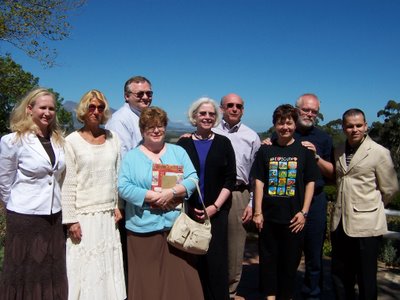Christian thinkers going back to St. Paul have described Christian leadership as an engagement with the eternal struggle between two opposing spiritual forces. St. Augustine of Hippo spoke of the City of God and the City of the World: the Civitas Dei and the Civitas Mundi. The former is dedicated to serving others and to God's will and to His glory. The latter is dedicated to the pursuit of worldly ideals - communities, cities of selflishness.
It is clear that St. Augustine was right; and that the contemporary western intellectual world, like the world of his times, is a battleground in which rages a battle for the souls of this world.
Today there is a challenge before us: Christian leadership to change the world. How do we do this? How do we ensure that we do not follow the road of worldliness (the road that leads to the Civitas Mundi, in St. Augustine's words) taken by so many others that have came before us? How do balance the call to holiness and leadership?
St. Francis of Assisi, in the thirteenth century, writing in a letter to the leaders of his day proposes a surprising approach to this tension in leadership:
"Pause and reflect, for the day of death is approaching. I beg you, therefore, with all possible respect, not to forget the Lord or turn from His commandments by reason of the cares and pre-occupations of this world...you should manifest such honor to the Lord among the people entrusted to you...that praise and thanks may be given by all people to the all powerful Lord God."I would like to highlight the central thought of St. Francis here: contemplating our own mortality as a way to understand and to surrender to our vocation to service, witness, holiness and transformation, because we have a sacred duty to those entrusted to us.
This idea is not new to scripture. Moses writing in Psalm 90 says: "Teach us to number our days, that we may gain a heart of wisdom." Contemplating death has a way of focussing us and distilling our vision of God and reality. This does not mean that we must exclusively focus on death or adopt a morbid spirituality. On the contrary, the Swedish Leader Dag Hammarskjöld once said:
"Do not seek death. Death will find you. But seek the road which makes death a fulfillment."We do not walk blindly. Albert Schweitzer once reminded all that: "Example is Leadership."
The quest for Christian leaders is to follow and lead as Christ did, so that we all one day can stand before our Maker and declare: "It is finished." We have done what was asked of us.











